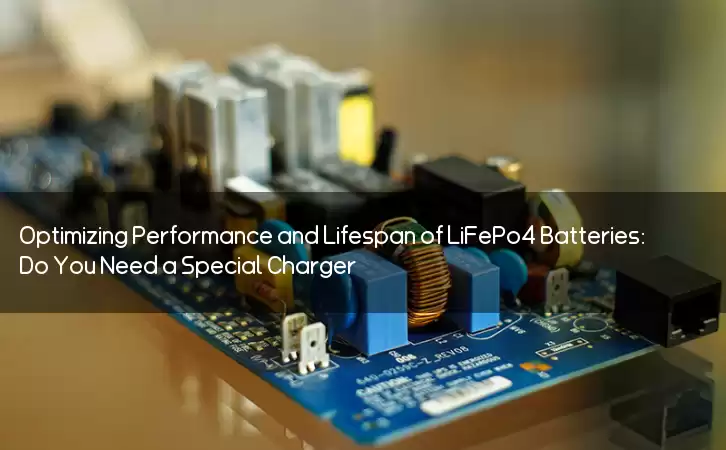Information Center
Optimizing Performance and Lifespan of LiFePo4 Batteries: Do You Need a Special Charger?
Published:2023-08-29 00:32:37 Author:Green WCND Views:87LiFePo4 batteries, also known as Lithium Iron Phosphate batteries, have become increasingly popular in recent years due to their many advantages such as high energy density, longer lifespan, and low environmental impact. However, many people wonder whether these batteries require a special charger for optimal performance and maintenance. In this article, we will answer this question by exploring the unique characteristics of LiFePo4 batteries and the chargers that are best suited for them.

Firstly, it is important to note that LiFePo4 batteries have a different charging profile compared to other types of batteries such as Lead-Acid or NiMH. LiFePo4 batteries require a constant current and voltage during the bulk charging phase, followed by a taper charging phase where the current gradually decreases as the battery reaches full capacity. This charging process is different from other batteries that require a bulk charge, followed by an absorption charge, and then a float charge. Therefore, it is important to use a charger designed specifically for LiFePo4 batteries to ensure optimal charging performance and longevity.
Secondly, LiFePo4 batteries have an inherent safety feature that requires the charging current to be limited within specific parameters. This is because LiFePo4 batteries can be damaged if the charging current exceeds these limits, leading to heat buildup, damage, and even explosions. Therefore, it is important to use a charger that has built-in safety features such as overcharging protection, over-discharging protection, and short circuit protection. These safety features will ensure that the battery is charged at the correct rate and to the correct level, reducing the risk of damage or failure.
Thirdly, LiFePo4 batteries have a lower internal resistance compared to other batteries, which means they can accept a higher charging current without heating up excessively. However, it is important to note that charging LiFePo4 batteries at high currents may reduce their overall lifespan and capacity. Therefore, it is recommended to use a charger that can adjust the charging current based on the battery’s capacity, to ensure that it is charging within the specified limits and not being damaged.
In conclusion, LiFePo4 batteries require a specific charger that can provide the correct charging profile, safety features, and adjust the charging current for optimal performance and longevity. Using a regular charger designed for other types of batteries can lead to reduced battery capacity, shorter lifespan, and even damage or failure. Therefore, it is important to invest in a quality charger designed specifically for LiFePo4 batteries to ensure that they are charging safely and to their fullest potential.
Power Adapter Design and Customization Guide for Portable Electric KettlesI. Common Design Types for Portable Electric Kettle Power AdaptersPortable electric ke···
I. Common Design Types of Power Adapters External Independent Type (Most Common) Design: A standalone adapter (e.g., "black brick") connected to the p···
Handheld Vacuum Cleaner Power Adapter Selection GuideIntroductionHandheld vacuum cleaners have become a mainstream tool for household cleaning due to their port···
Drill Power Adapter Selection Guide.drill-container { font-family: Arial, sans-serif; line-height: 1.6; max-width: 800px; margin: 0 auto; padding: 20px; } .dril···





